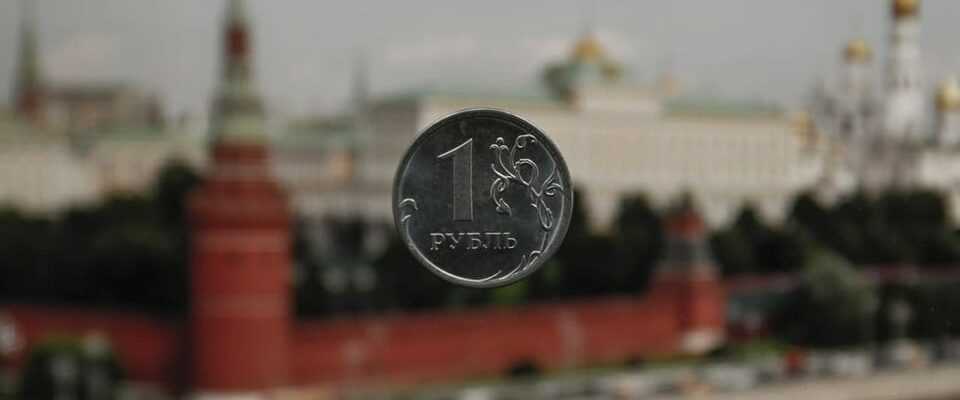contents
Normally, currencies more or less reflect the state of an economy. For example, if an economy is doing well and exports a lot, a currency is strong because it is in demand. Switzerland knows this very well. Gut feelings now suggest that the ruble should remain weak as economic sanctions are taking a toll on the Russian economy, as even the Central Bank of Russia confirmed this week.
However, economic sanctions are never aimed directly at a currency. And the above principle only applies if currencies are freely tradable – which is no longer the case with the ruble. Because the Russian central bank has set up massive capital controls.
Legend:
The Russian currency collapsed by half against the dollar after the war began. But now, two months later, the ruble has recovered and is hovering just below its pre-war level.
key stone
The capital controls mean that as few rubles as possible can be sold – and as many rubles as possible have to be bought. Both artificially support the ruble exchange rate. Russians and companies are only allowed to exchange rubles for foreign currencies to a limited extent. On the other hand, companies that receive foreign currency from abroad for their goods, such as Gazprom or other export companies, have to convert 80 percent of this income into rubles. These ruble purchases also artificially support the ruble.
And because Russian companies earn almost a billion dollars a day just from sales of gas and oil, huge sums are exchanged for rubles. The high gas and oil prices are helping: because oil and gas are much more expensive than they were a year ago, earnings are bubbling up more than they used to. According to the Bloomberg agency, Russia will earn almost $300 billion from energy sales this year, up 30 percent from 2021. As a result, more dollars and euros will also be exchanged for rubles.
Hardly anyone buys rubles voluntarily
At the same time, the sanctions mean that Russia is currently only importing half as many goods from abroad as it did before the war – so you need less foreign currency for imports and you have to sell fewer rubles. This also supports the ruble exchange rate. And last but not least, the Russian companies had to pay taxes in March – and had to convert part of their 180 billion dollar reserves into rubles. Because taxes have gone up. These transactions have also supported the ruble exchange rate.
And so it is clear: If capital controls were lifted tomorrow or the sale of gas and oil to Europe stopped tomorrow, the ruble rate would implode. Hardly anyone buys rubles voluntarily anymore. Not even Russians themselves, as the black market shows – everyone wants dollars or euros.

